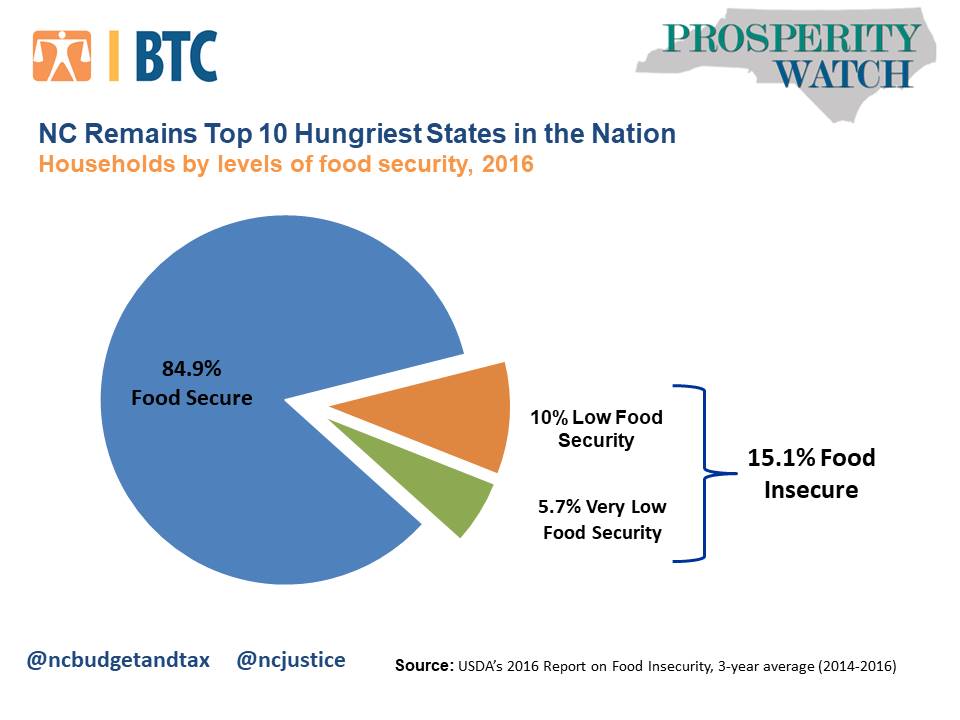Last year, 15.1 percent of North Carolinians – representing more than half a million households – did not have enough to eat. North Carolina has the 10th highest rate of food insecurity in the nation. According to a study done by Feeding American, more than 1 in 5 children in the state are food insecure.

A food-secure household means that all members of the home have access to enough healthy and nutritious food to support an active and healthy lifestyle. Homes that have low food security often must make tough choices about the amount and quality of food they are able to provide their families. Homes that are considered to have “very low” food security often miss meals.
According to the USDA, in the past year, more than 90 percent of these families worried that food would run out, nearly 80 percent could not afford a balanced meal, and people in 96 percent of homes with very low food security skipped meals in order to make food stretch.
But not everyone is impacted equality. Income inequality, housing segregation, and a lack of public investments create barriers for particular households. Households with children, households led by women, and households of color all face higher rates of food insecurity. Across the nation, 16.5 percent of homes with children are food insecure compared to 10.5 percent of homes without children. In households headed by single-mothers, 31.6 percent are food insecure compared to 21.7 percent of households with single-fathers. And while 9.3 percent of white households experience food insecurity, Black and Hispanic/Latinx households experience food insecurity at rates of 22.5 and 18.5 percent, respectively.
Since peaking at 17.3 percent in 2013, North Carolina’s food insecurity rate has slowly declined, yet still remains well above pre-recession levels of 12.6 percent. Today, 5.7 percent, or 228,000 households, report missing meals. That’s almost twice the number of households in Durham, NC.
Making sure people have enough to eat will support a thriving North Carolina by ensuring children are able to go to school, ready to learn, and their parents are able to work and participate without worrying about putting food on the table.
 Justice Circle
Justice Circle